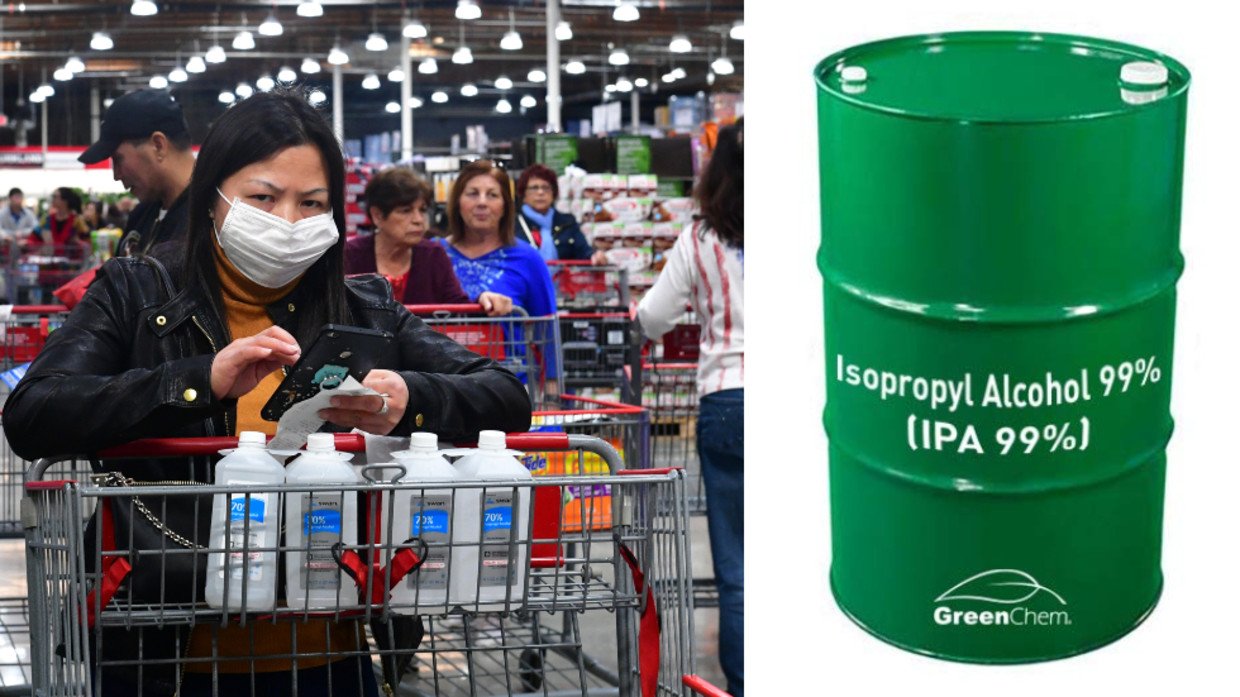A reporter for the Washington Post was taken to the woodshed after she cited a price tag for an industrial-sized barrel of rubbing alcohol to imply the Trump administration sent its cost skyrocketing… but edited out the barrel.
Journalist Amber Phillips, who works on the Post’s political analysis blog ‘The Fix,’ posted a tweet on Thursday evening suggesting that by mentioning isopropyl alcohol’s effectiveness in ‘killing’ the coronavirus, President Trump triggered a vast spike in price for the common cleanser.
“Isopropyl alcohol, which the Trump administration is saying can kill the virus in 30 seconds on surfaces, for sale on Amazon right now for $2,375,” Phillips said in a now-deleted tweet, sharing a screenshot from the online retailer showing a seemingly steep price.
So what’s the rub? The journalist conveniently – and by all appearances deliberately – cropped the image to omit the quantity for sale: a massive, industrial-sized 55-gallon drum of the volatile liquid, a bit more than the 32-ounce bottle one might pick up at the local corner store. Netizens quickly took notice of the deceptive edit, unleashing a wave of ridicule on the reporter, who promptly sent the embarrassing tweet into the memory hole.
“I thought you were being dumb but you're clearly just lying,” one critic said. “You cropped out the picture of the 55 gallon drum, which means you knew it was that much.”
If Phillips is willing to bend the truth on “something petty like this,” another commenter asked, how can anyone trust her judgement “about the stuff that does matter,” which the average reader “can’t double check?”
Others pointed out that standard 70 percent rubbing alcohol found in medicine cabinets across the country – generally cheaper than the less common 99 percent concentration mentioned in Phillips’ tweet – is still going for its typically low price of a few cents per fluid ounce.
While Phillips quickly scrubbed her post after she began to take heat for the convenient crop job, she has yet to address or correct the error, carrying on with her regular tweeting as if nothing happened.
The brief controversy came after President Trump was criticized earlier on Thursday for suggesting it might be possible to “inject” disinfectants into coronavirus patients to combat the illness, or, alternatively, bringing “light inside the body” to achieve the same end. While the commander in chief cited a federal study to back up his musings – which concluded heat, sunlight and humidity could help to kill off the virus on certain surfaces – the research did not look into any of the above as potential treatments for those already infected.
Like this story? Share it with a friend!

